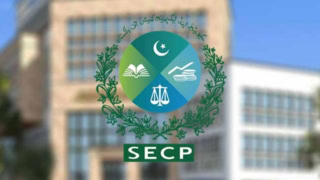Pakistan continues to face significant challenges in achieving financial inclusion and expanding digital payment adoption, as highlighted in a recent World Bank report. The report reveals that 115 million adults remain unbanked, making Pakistan home to the third-largest unbanked population globally.
This stark figure underscores the persistent barriers to financial access, with notable disparities across gender and income levels. Moreover, the report indicates that only 18% of adults in Pakistan have made or received a digital payment, reflecting a substantial gap when compared to global trends in financial digitization.
Despite ongoing efforts to modernize government payment systems, including the development of RAAST (Real-time Automated and Secured Transfer), Pakistan still faces considerable obstacles in ensuring that its population can fully benefit from digital financial services.
While RAAST is gradually enhancing its capacity to facilitate person-to-government (P2G) and government-to-person (G2P) transactions, the integration of government platforms with this system remains incomplete. Achieving full integration is critical to unlocking RAAST’s potential for improving efficiency and cost-effectiveness in government payments.
Once finalized, there will be a need for government platforms to integrate with RAAST for these P2G and G2P transfers, which can lead to increases in efficiency and cost effectiveness for governments already digitalizing payments and could also represent an attractive opportunity for government payments that have not yet been digitalized.
This has been revealed in the World Bank latest report. In turn, supporting digitalising these payments can boost trust and convenience for users and can also contribute to advancing financial inclusion in the country.
Financial inclusion, in particular account ownership, remains a challenge in Pakistan, hindering the impact a fast payment system could have in end users. Pakistan is not only the country with the lowest account ownership in the region, but there are also persistent gaps between rich and poor and between men and women.
Although account ownership and mobile money usage are on the rise, 114 million adults in Pakistan remain unbanked. Only 18 percent of adults have made or received a digital payment, and large disparities persist—particularly across gender and income levels—both in owning accounts and using digital financial services.
The report further noted that progress on data sharing remains limited, with enabling policies, legal frameworks, institutional arrangements, and technical infrastructure still largely absent beyond sector-specific use cases. Although most public registries rely on NADRA’s CNIC as a common identifier, there is limited system-wide integration for verification.
This represents a critical gap that could be addressed through the development of interoperability frameworks and secure data exchange platforms—such as government service buses and API gateways—to allow data to flow both horizontally (across service providers) and vertically (within different tiers of government).
Additionally, data governance is spread out, with provinces moving forward at different speeds and often working alone, highlighting the urgent need to invest in shared systems and resources to enable safe, organised, and expandable data sharing.

 3 min read
3 min read


















